Update January 19, 2024. added V 14 integration result (differential equations and PDE's update for V 14 will take more time to complete)
Update July 12, 2023. added 13.3 integration result (differential equations and PDE's update for V 13.3 will take more time)
Mathematica is very large and complex software which covers many many different areas.
Some of the things that WRI needs to improve on is overall quality and performance of the FE and or the kernel, to make things more robust and less prone to hangs, crashes and sudden freezes, specially when using Dynamics.
I can only comment myself on few specific areas. In the area of integration, this bar chart shows the progress made. This is for integration test using 14,944 integrals of many types. These integrals are a subset of Rubi's full integration test suite.
Integration
The percentage solved remained the same for V 14 as V 13.3.1, at 98.68% but the grading and leaf size improved. It is probably hard to improve much when % solved is as high as it is now.
Note that the percentage solved have been corrected for all systems to count integrals that were not solved but are known to be not integrable as passed instead of failed as before. The Rubi test suite has number of integrals that are not solvable.
This now match the way the Full CAS integration test count things.
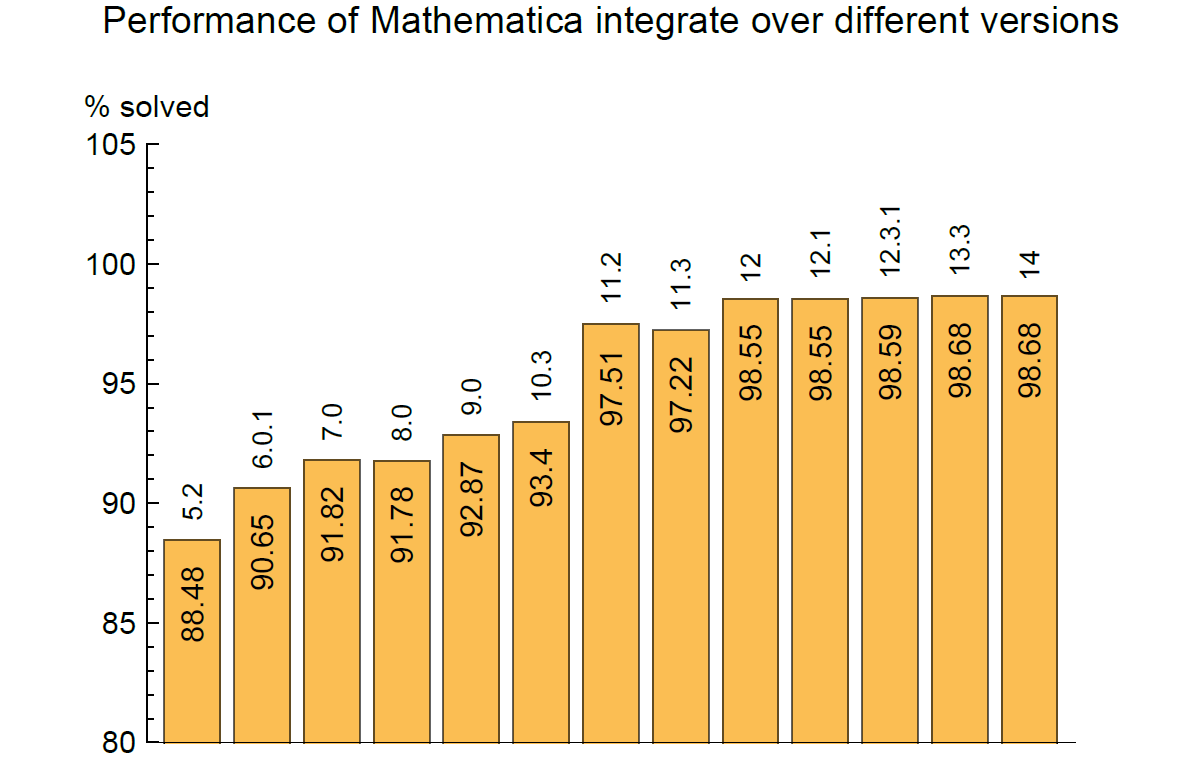
The quality of the anti-derivatives has improved in V 14. This chart shows the percentage of A grade of anti-derivatives for same test over the years. A grade means optimal anti-derivative. (Higher is better)
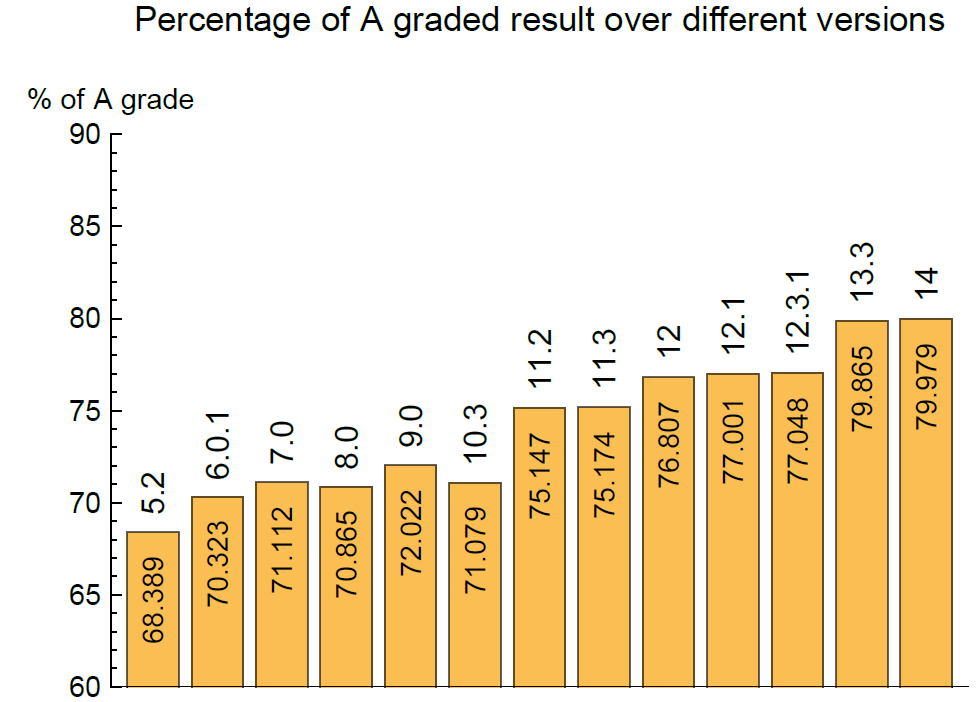
There are 4 grades for each integral. A,B,C and F. Where A is best, and F for not able to integrate it.
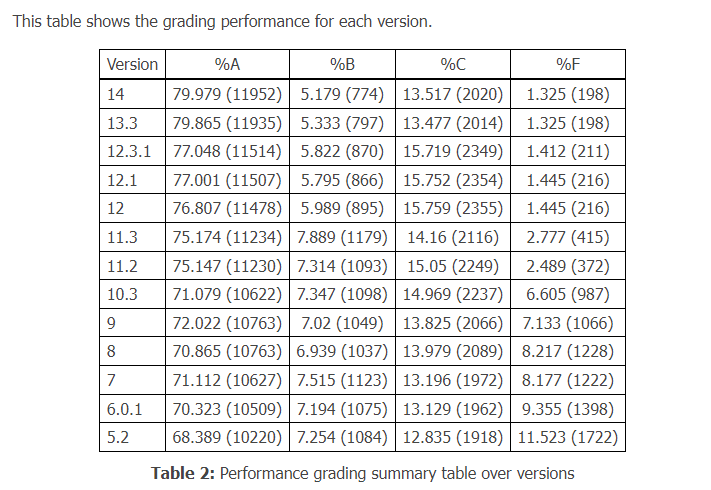
The leaf size also improved.
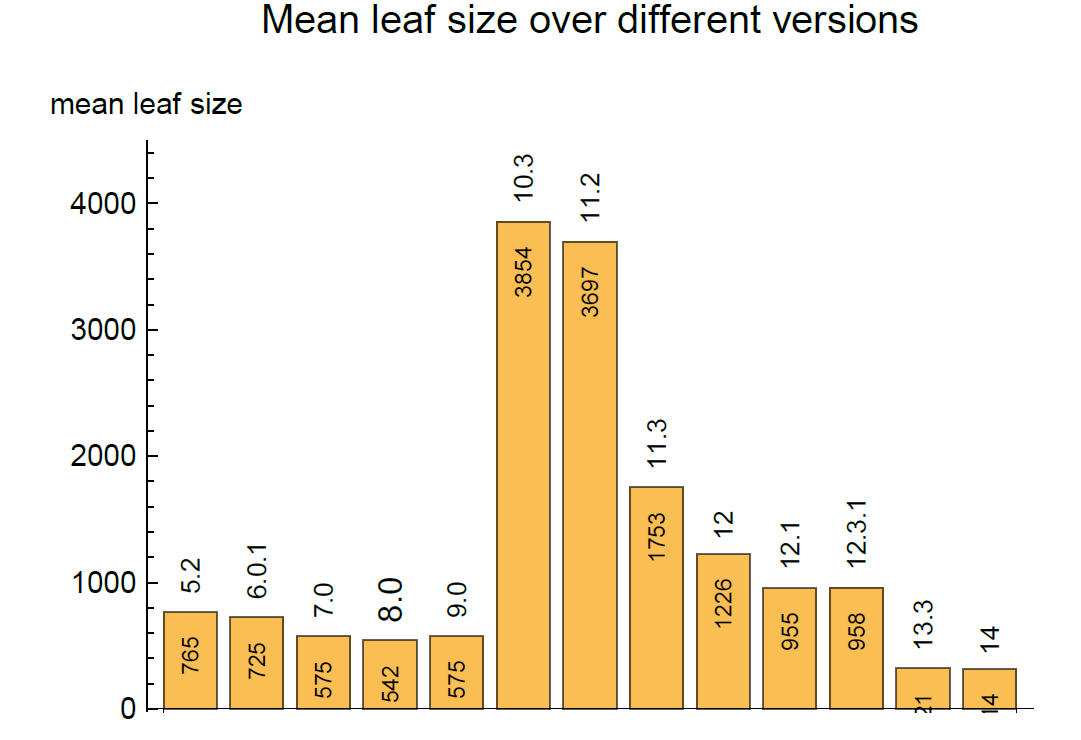
So overall, I would say that Integrate has been improving over the years.
DSolve for PDE
For DSolve in the area of PDE's, using test suite of about 2,000 PDE's, here is the result
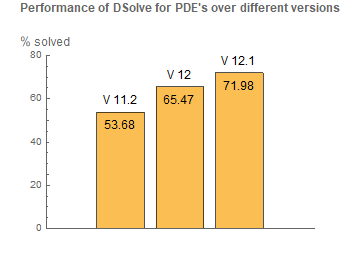
This shows steady and good improvement in this area.
DSolve for ODE
In the area of DSolve and ODE's, using the famous Kamke's set of ODE's (1,940 differential equations from Kamke book), this is the result
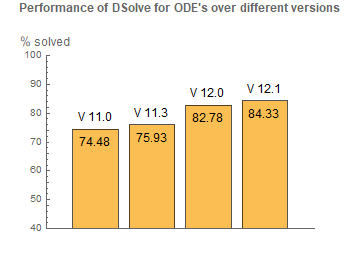
This also shows steady and good improvement in this area.
Some of the things that WRI needs to improve on is overall quality and performance of the FE and or the kernel, to make things more robust and less prone to hangs, crashes and sudden freezes, specially when using Dynamics.
Oh, and I forgot one thing we all need and been waiting for for many many years: an easy to use debugger !!
Edit
Additional related charts on this subject are at
Differential equations, version 12.3 and improving the level of the questions







NumericArrayand clear interest in improving on that. On the other hand, no matter what your field there are many things where you might want something to have been done, but it hasn't. My big thing is that packaging is still iffy, which dis-incentivizes the community to actually contribute to the system. $\endgroup$